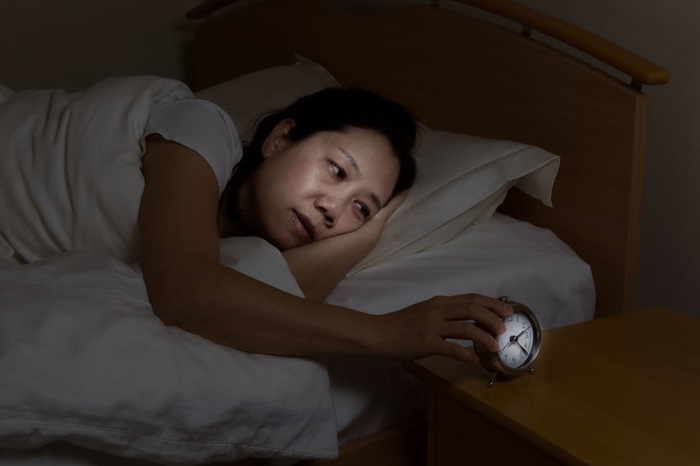Menopause is a natural biological process that marks the end of a woman’s reproductive years. Along with the cessation of menstruation, menopause can also bring about a range of physical and emotional changes, including disruptions to sleep. In this article, we’ll explore the manifestations, causes, and treatment of menopausal sleep.
Manifestations of menopausal sleep
Insomnia: Insomnia is one of the most common sleep disturbances experienced by women during menopause. Insomnia can make it difficult to fall asleep or stay asleep, leading to daytime fatigue and irritability. Hormonal changes during menopause can disrupt the body’s natural sleep-wake cycle, making it harder to get a good night’s sleep.
Hot flashes and night sweats: Hot flashes and night sweats are another common manifestation of menopausal sleep. These sudden surges of heat can cause sweating and discomfort, making it difficult to sleep through the night. Hot flashes and night sweats may occur more frequently during menopause due to hormonal changes in the body.
Sleep apnea: Sleep apnea is a sleep disorder that causes breathing to repeatedly stop and start during sleep. Menopausal women may be at an increased risk of developing sleep apnea due to changes in body weight and hormonal changes. Sleep apnea can cause loud snoring, gasping for breath during sleep, and daytime fatigue.
Restless leg syndrome: Restless leg syndrome is a neurological disorder that causes an irresistible urge to move the legs, especially at night. Menopausal women may be more likely to experience restless leg syndrome due to hormonal changes and iron deficiencies. Restless leg syndrome can cause difficulty falling asleep and disrupted sleep throughout the night.
Mood disturbances: Menopausal women may also experience mood disturbances that can disrupt sleep. Anxiety, depression, and irritability are common during menopause and can make it difficult to fall asleep or stay asleep. Hormonal changes during menopause can also contribute to these mood disturbances.
Causes of menopause sleep
Hormonal changes: Hormonal changes during menopause can disrupt the body’s natural sleep-wake cycle, leading to sleep disturbances. The levels of estrogen and progesterone, two hormones that regulate the menstrual cycle, decrease during menopause. These hormonal changes can lead to hot flashes, night sweats, and insomnia.
Changes in body weight: Menopausal women may experience changes in body weight, which can contribute to sleep disturbances. Weight gain can increase the risk of developing sleep apnea, a sleep disorder that causes breathing to repeatedly stop and start during sleep. Sleep apnea can cause loud snoring, gasping for breath during sleep, and daytime fatigue.
Iron deficiencies: Iron deficiencies are common during menopause and can contribute to restless leg syndrome, a neurological disorder that causes an irresistible urge to move the legs, especially at night. Restless leg syndrome can cause difficulty falling asleep and disrupted sleep throughout the night.
Mood disturbances: Menopausal women may experience mood disturbances, such as anxiety and depression, which can disrupt sleep. Hormonal changes during menopause can contribute to these mood disturbances, making it difficult to fall asleep or stay asleep.
Lifestyle factors: Lifestyle factors, such as smoking, alcohol consumption, and poor sleep habits, can also contribute to menopausal sleep disturbances. Smoking and alcohol consumption can disrupt sleep and increase the risk of developing sleep apnea. Poor sleep habits, such as irregular sleep schedules and excessive use of electronic devices before bedtime, can also disrupt sleep.
The treatment of menopause sleep
Lifestyle changes: Lifestyle changes such as regular exercise, a healthy diet, and stress management techniques may help alleviate menopausal sleep disturbances. Exercise can improve sleep quality and reduce the frequency of hot flashes. A healthy diet can help regulate hormones and reduce the risk of developing sleep apnea. Stress management techniques, such as meditation and deep breathing, can help reduce anxiety and improve sleep quality.
Medical treatments: Medical treatments, such as hormone replacement therapy (HRT) or medications for sleep disorders, may also be recommended by healthcare professionals to help manage menopausal sleep disturbances. HRT can help regulate hormones and reduce the frequency of hot flashes and night sweats. Medications for sleep disorders, such as sedatives or antidepressants, may also be prescribed to help improve sleep quality.
Alternative therapies: Alternative therapies, such as acupuncture and herbal remedies, may also be used to manage menopausal sleep disturbances. Acupuncture has been shown to improve sleep quality and reduce the frequency of hot flashes. Herbal remedies, such as black cohosh and valerian root, may also help alleviate menopausal sleep disturbances.
Cognitive-behavioral therapy (CBT): CBT is a type of therapy that focuses on changing negative thought patterns and behaviors that can contribute to sleep disturbances. CBT for insomnia (CBT-I) is a specific type of therapy that has been shown to be effective in treating menopausal sleep disturbances. CBT-I can help improve sleep quality and reduce the frequency of hot flashes and night sweats.
Sleep hygiene: Sleep hygiene refers to the habits and practices that promote good sleep quality. Menopausal women can improve their sleep hygiene by creating a relaxing sleep environment, avoiding caffeine and alcohol before bedtime, and establishing a regular sleep schedule.
Conclusion
Menopausal sleep disturbances can have a significant impact on a woman’s overall health and well-being. Insomnia, hot flashes and night sweats, sleep apnea, restless leg syndrome, and mood disturbances are all common manifestations of menopausal sleep.
By understanding the causes and treatment options, women can take steps to improve their sleep and overall health during menopause. Lifestyle changes, medical treatments, and alternative therapies may all be effective in managing menopausal sleep disturbances.
Related topics:


